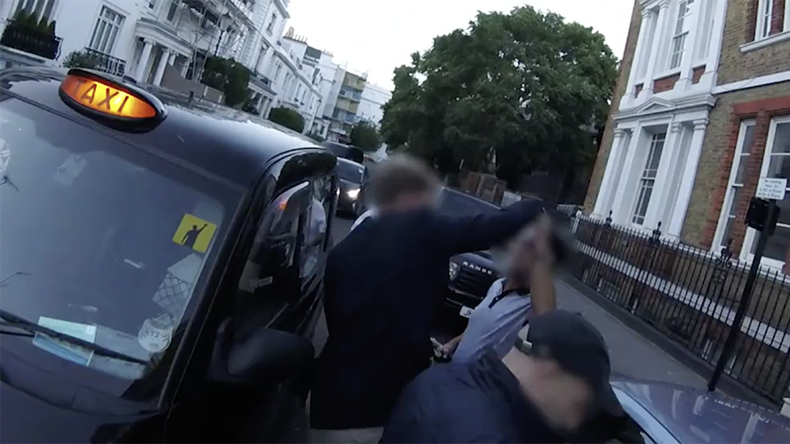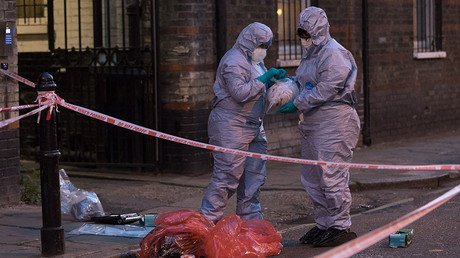Treating an acid attack: Doctors issue first aid advice after 400 incidents in 6 months

Doctors have issued advice for witnesses of acid attacks, which can play a crucial role in saving victims’ lives or limiting the extent of their injuries.
Up to 400 offences were reported to police in the six months to April.
In response to the wave of attacks, professionals from the Royal College of Emergency Medicine (RCEM) and Barts Health NHS Trust have issued advice for bystanders.
Witnesses can play a vital role in minimizing the effects of scarring and the need for surgical reconstruction with immediate first aid treatment.
“Already 2017 has seen a big increase in acid attacks in the UK, relative to 2016,” the trio of medics wrote in the British Medical Journal (BMJ).
“Whereas in the past most of the attacks were related to robberies, corrosive substances now seem to be a replacement for carrying knives.”
“Similarly, ambulance service responders and health professionals in emergency departments must have clear guidance on immediate steps to minimize secondary harm and training on how to deal with these devastating, life changing attacks,” they added.
They stressed the importance of removing the victim from exposure to the chemical as soon as possible using vast amounts of water, which is “vital” to clear the acid.
Johann Grundlingh, an emergency consultant at Barts who co-authored the report, however, warned that using only a small amount of water could prove ineffective.
“I think there’s an inherent reaction to when you see someone with a burn to put water on it, or something cold on it least.
“Definitely the people I’ve encountered on the street who have been attacked want to wash off what they’ve been attacked with,” he told Sky News.
“But a small 350ml bottle of water is not going to help. It’s the volume of water that is necessary and that people don’t know about and we encourage people to use liters and liters of water.”
The advice comes amid calls for new legislation that would see acid attacks treated in the same way as knife crime.
Home Secretary Amber Rudd recently said perpetrators could be handed life sentences.
“I am clear that life sentences must not be reserved for acid attack survivors,” she wrote in the Sunday Times last month.
“There is something particularly troubling about these kinds of attacks,” she said.
“Our faces tell our stories. To burn and to disfigure [a face] is the most grotesque and vicious act of identity destruction.”
Up to 300,000 people have also signed a petition to make it unlawful to buy acid without a license.
Sarmad Ismail, who started the petition, said it is extremely easy it is to buy acid online.
“You put sulphuric [sulfuric] acid into Google and the results that come up are ‘Concentrated acid neutraliser’, ‘2.5l or Sulphuric acid 96 percent’, which is £11.95 [US$15.75] and will be delivered to your door.
“And what comes to your door can completely destroy a life,” he said.
“There should be checks in place, especially on these websites. There should be licensing.”














